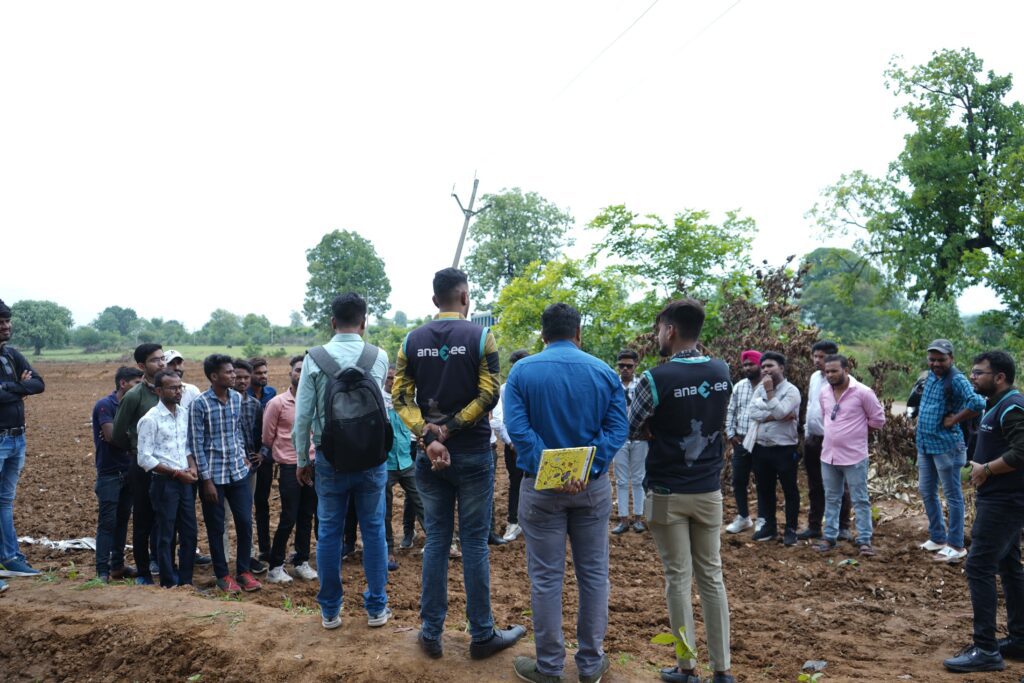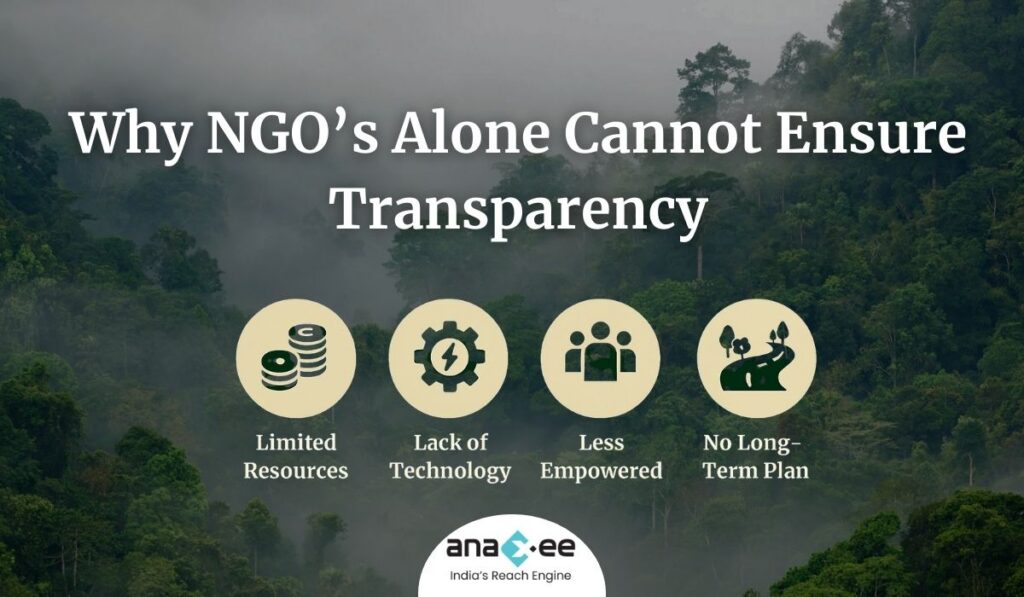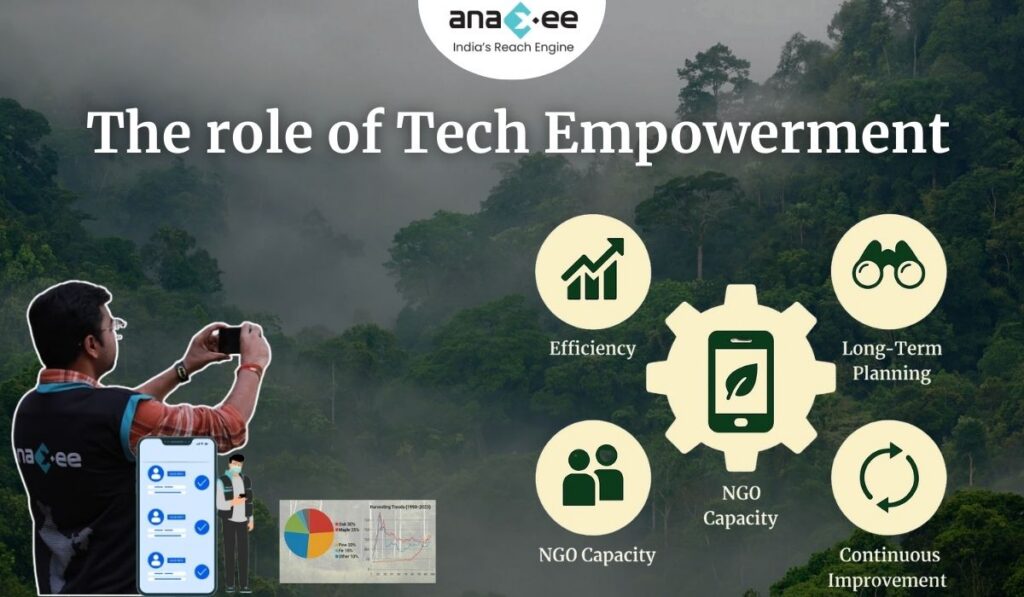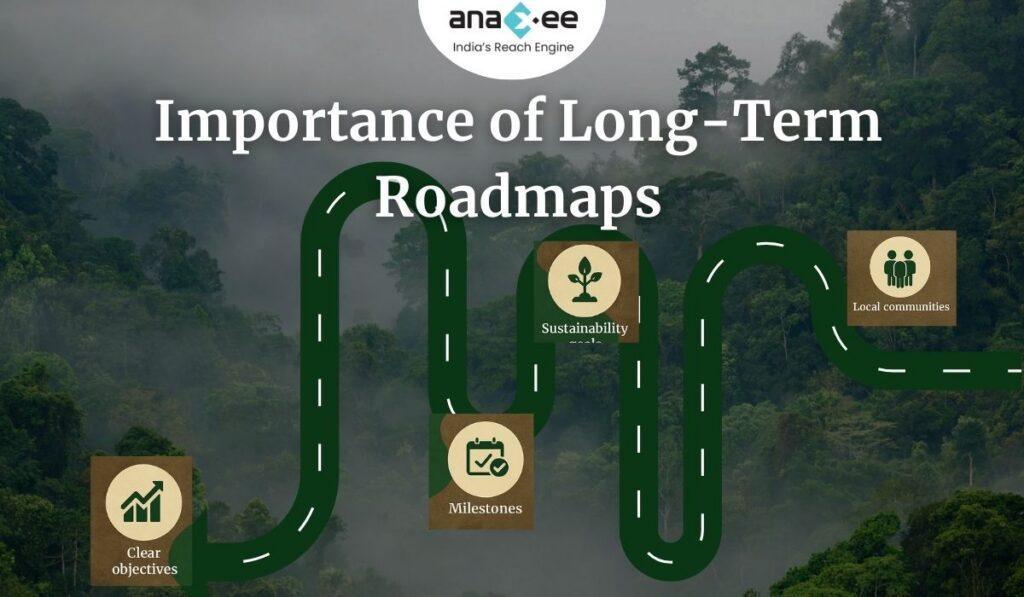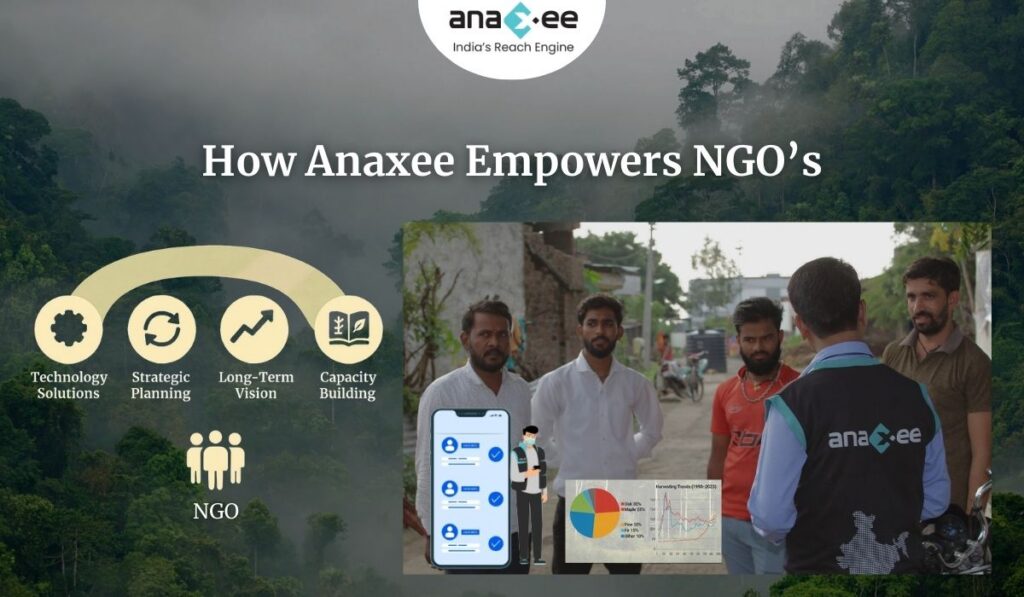BLOG

Why Empowering NGOs with Tech and Long-Term Roadmaps is the Key to Transparent Carbon Projects.
Sep 24 2025
Why Empowering NGOs with Tech and Long-Term Roadmaps is Key to Transparent Carbon Projects
Introduction
In India’s climate action journey, one actor appears repeatedly in conversations about Corporate Social Responsibility (CSR) and sustainability: the NGO. These non-governmental organizations connect corporates with communities, drive awareness, and mobilize action at the grassroots level. They are indispensable. But here’s the uncomfortable truth: NGOs alone cannot deliver the transparency and integrity that climate and carbon projects demand. Corporates today are increasingly channeling CSR funds into climate projects—tree plantations, renewable initiatives, sustainable agriculture, and more. The goal isn’t just goodwill; it’s long-term climate impact, often linked with measurable outcomes like carbon credits. And that’s where the challenge lies: while NGOs can plant trees and train communities, they are not equipped to handle 20-year project cycles, digital MRV systems, or international carbon standards. The way forward isn’t to sideline NGOs but to empower them—with technology, with training, and with roadmaps that extend decades into the future. This empowerment is the only way to ensure that CSR-driven climate projects are not just symbolic but transparent, credible, and measurable.The Current Reality of NGO-Led CSR Climate Projects
For decades, NGOs have been the backbone of CSR initiatives in rural India. They organize tree plantation drives, run awareness campaigns, support water conservation, and provide basic environmental education. Their strength lies in their deep community ties and ability to mobilize people at short notice. However, CSR-linked climate projects require far more than goodwill and community trust. They demand: -Long-term project continuity (15–20 years). -Monitoring, reporting, and verification (MRV) aligned with international standards like Verra or Gold Standard. -Transparency mechanisms that corporates can showcase to investors and regulators. Most NGOs lack the resources, skills, and frameworks to deliver on these requirements. They are structured for short-term projects—a 3-year grant cycle, a 5-year funding program—not for projects spanning two decades. The result? Many CSR climate projects end up as one-off activities: trees planted but not maintained, awareness drives conducted without follow-up, carbon benefits claimed but never measured. Corporates spend, NGOs implement, but long-term transparency is lost.Why NGOs Alone Cannot Ensure Transparency

There is a tendency to romanticize NGOs as the guardians of community trust. While they indeed bring authenticity at the grassroots, relying on NGOs without empowerment risks undermining CSR climate projects.
Key Limitations:
- Limited Technical Knowledge NGOs understand people, not carbon accounting. They cannot design projects compliant with methodologies like VM0047 or REDD+ standards.
- Weak Data Systems Monitoring is often reduced to photographs and anecdotal reports. This does not pass the scrutiny of auditors or carbon markets.
- Short-Term Orientation NGOs operate on grant cycles. A carbon project needs a 20-year roadmap—something most NGOs simply don’t plan for.
- Resource Constraints Lack of funding, digital tools, and trained personnel means NGOs are stretched thin.
- Fragmented Operations With thousands of small NGOs working in silos, consistency and standardization become impossible.
The Case for Tech-Enabled Empowerment

If NGOs cannot deliver transparency alone, how do we bridge the gap? The answer lies in technology-driven empowerment.
Digital MRV (Monitoring, Reporting, Verification)
Carbon projects require robust MRV systems to track growth, sequestration, and community benefits. Tech tools like mobile apps, satellite monitoring, and IoT devices allow data collection in real time. When NGOs are trained to use these tools, they transform from facilitators into credible data partners.Dashboards and Transparency Layers
Corporates need evidence of impact—number of trees planted, carbon captured, livelihoods improved. Digital dashboards offer exactly that, creating a transparent pipeline of data from ground to boardroom.Training & Standardization
Empowering NGOs with standard operating procedures (SOPs), carbon methodology training, and consistent reporting frameworks ensures their work can integrate into global carbon markets.Verification Integration
With digital tools, NGOs can become part of third-party verification processes, ensuring that their contributions are measurable and independently verifiable. In short: tech makes NGOs not just community connectors but pillars of transparency.The Importance of Long-Term Roadmaps

A CSR-funded carbon project is not an event. It is a commitment. For trees planted today to sequester meaningful carbon, they need to survive and thrive for decades. For farmers adopting agroforestry, the benefits unfold over years, not months.
Why Long-Term Roadmaps Matter:
-Carbon Credit Validation: Markets require 15–20 year projections, not 2-year activity reports. -Community Trust: Villagers will only stay engaged if they see consistent support over time. -Corporate Accountability: Investors and regulators will demand evidence of ongoing impact. -Financial Viability: Without long-term planning, projects cannot generate or sustain carbon credits. Most NGOs don’t think beyond their current funding cycle. Empowerment means equipping them with roadmaps aligned with CSR strategies and carbon market expectations.How Empowerment Improves Community Impact
Empowering NGOs isn’t just about satisfying corporate auditors. It creates real change at the community level. -Better Training: Fieldworkers equipped with tech tools can teach farmers smarter agroforestry practices, not just distribute seedlings. -Livelihood Security: When projects are linked to long-term carbon credits, communities gain stable income streams. -Awareness Continuity: Education isn’t a one-off workshop; it becomes an ongoing dialogue. -Trust Building: Transparency tools reduce skepticism among villagers, as they see their efforts measured and valued. In essence, empowerment multiplies the impact of every CSR rupee spent.Anaxee’s Approach to Empowering NGOs
How We Do It:
- Digital Runners Network With 40,000+ Digital Runners across India, we provide NGOs with last-mile data collection capabilities.
- dMRV Tools Our digital monitoring systems feed real-time project data into transparent dashboards corporates can access anytime.
- Training Modules We train NGO staff in carbon methodologies, ensuring their activities align with global standards.
- Roadmap Design Projects are structured for 15–20 years, integrating NGOs into sustainable, long-term frameworks.
- Integrity Backbone Corporates can rest assured their CSR funds are producing measurable, verifiable climate outcomes.
The Future: CSR, NGOs, and Transparent Carbon Credits
Looking ahead, CSR in climate will only grow. Indian corporates are under increasing pressure from investors, regulators, and global markets to prove their climate credentials. Spending CSR funds is not enough. Showing results with transparency will be the new benchmark. In this future: -NGOs will remain critical connectors to communities. -Empowered NGOs will deliver measurable climate outcomes. -Corporates will demand data-backed evidence of impact. -Partners like Anaxee will provide the frameworks to make it all possible. Without empowerment, NGOs risk being sidelined as corporates look elsewhere. With empowerment, they will remain central to India’s climate transformation.Key Takeaways for Corporates & Investors
-Don’t hand over CSR climate projects to NGOs without a support system. -Empower NGOs with tech tools, training, and long-term roadmaps. -Demand transparency—not just activity reports, but verifiable data. -Partner with organizations like Anaxee that act as the integrity backbone. Because in the end, climate action is not about planting trees for photos. It’s about building trust, transparency, and measurable impact that lasts for decades.About Anaxee: Anaxee drives large-scale, country-wide Climate and Carbon Credit projects across India. We specialize in Nature-Based Solutions (NbS) and community-driven initiatives, providing the technology and on-ground network needed to execute, monitor, and ensure transparency in projects like agroforestry, regenerative agriculture, improved cookstoves, solar devices, water filters and more. Our systems are designed to maintain integrity and verifiable impact in carbon methodologies. Beyond climate, Anaxee is India’s Reach Engine- building the nation’s largest last-mile outreach network of 100,000 Digital Runners (shared, tech-enabled field force). We help corporates, agri-focused companies, and social organizations scale to rural and semi-urban India by executing projects in 26 states, 540+ districts, and 11,000+ pin codes, ensuring both scale and 100% transparency in last-mile operations. Connect with Anaxee at sales@anaxee.com
